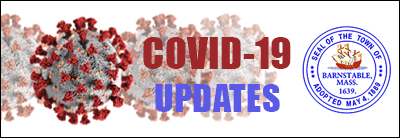Vaccinations for residents living in and staff working in public and private low income and affordable housing for older people
Residents and staff of public and private low income and affordable senior housing are included in the Phase 2 of vaccine deployment in the Commonwealth of Massachusetts, which we anticipate to begin in February.
Public and private low income and affordable senior housing is defined as any residential premises available for lease by older or disabled individuals which is financed or subsidized in whole or in part by state or federal housing programs established primarily to furnish housing rather than housing and personal services. Specifically, this includes the following types of age-restricted housing properties:
- Public housing properties designated primarily for older adults that are owned/operated by Local Housing Authorities. This includes those public housing properties owned by a Housing Authority but managed by a private company.
- Privately owned rental properties designated for older adults that are financed in whole or part through resources made available from DHCD, MassHousing, or the U.S. Department of Housing and Urban Development (HUD), and in which the majority of units are restricted to residents earning less than 80% of Area Median Income.
“Residents” include those household members currently on the lease for a rental unit in public and private low income and affordable senior housing.
“Staff” includes all persons, paid or unpaid, working or volunteering at each of the qualified housing locations, who have the potential for exposure to residents or to infectious materials, contaminated environmental surfaces, or contaminated air.
Federal Pharmacy Partnership Program
The Center for Disease Control and Prevention (CDC) launched the Federal Pharmacy Partnership Program (FPPP) to deploy vaccines to Long Term Care Facilities, including nursing homes, rest homes, assisted living residences, and continuing care retirement communities. The CDC included a select few affordable senior housing properties in the FPPP rollout those properties funded through the HUD Section 202 Supportive Housing for the Elderly program). However, per the CDC, other low-income affordable housing was not eligible for the FPPP. A list of facilities eligible for the FPPP can be found here.
For the staff and residents of those properties that are not included in the FPPP and are considered public and private low income and affordable housing, there are three vaccination deployment options described below.

